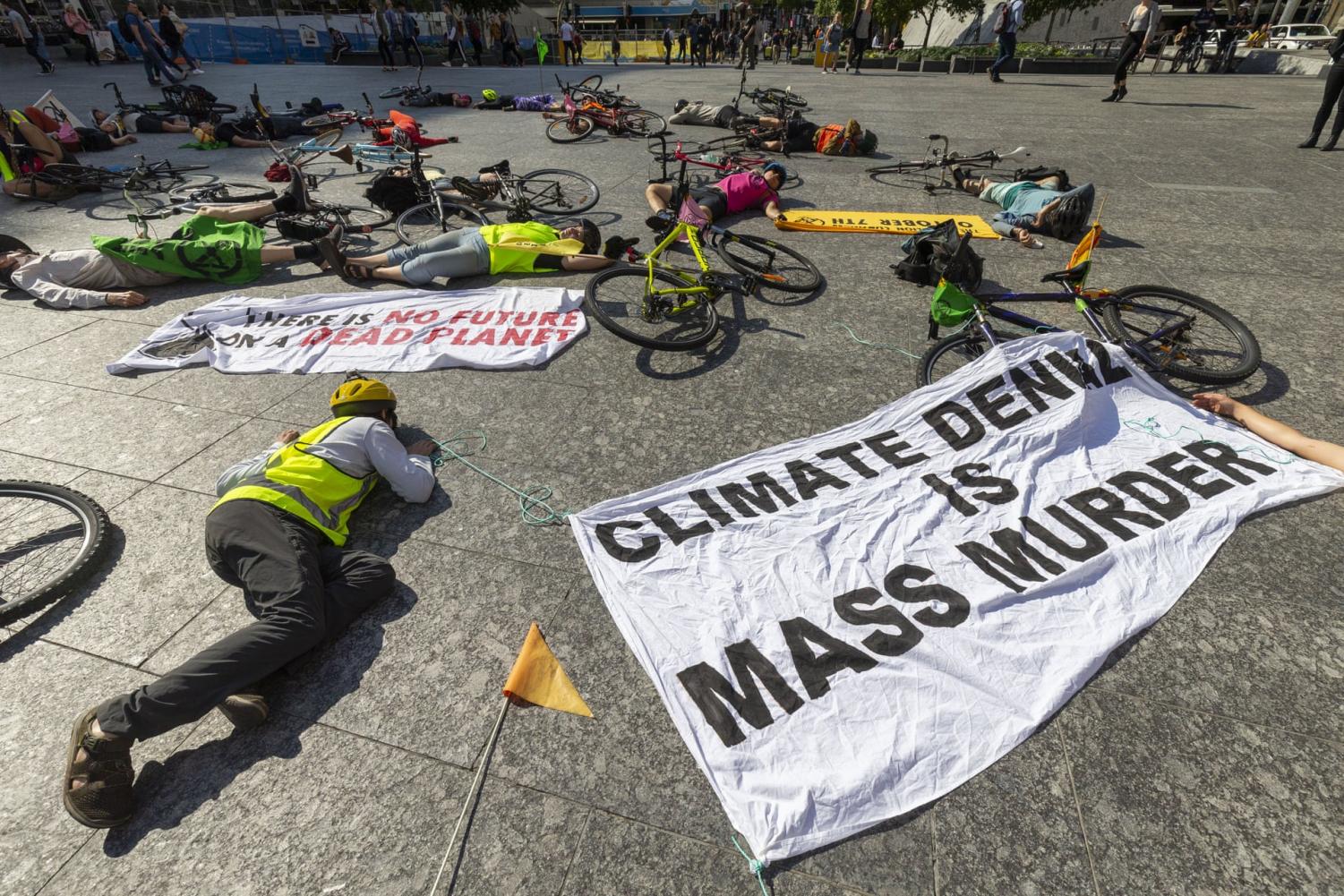A Political Strategy to Limit Climate Change

Although the effects of climate change are being seen on a global scale, it is disappointing that there is still a lack of political action from world leaders, said Anatol Lieven, professor of international relations and foreign policy at Georgetown University in Qatar, in a virtual event held on Jan 18.
This event titled A New Political Strategy for the Struggle to Limit Climate Change was organized by GU-Q’s Center of International and Regional Studies (CIRS) and moderated by Ahmad Dallal, dean of GU-Q. The discussion was based on Lieven’s latest book, Climate Change and the Nation State: The Realist Case. He discussed the need to “generate a political will in leaders to take the painful but radical action” against climate change.
Lieven started the discussion by highlighting the need to raise awareness about the effects of climate change, considering this is an issue that is still not prioritized by world states.
“There is no greater damage countries can do to each other that is greater than the damage climate change can do to them,” he said.
When asked by Dallal about the kinds of barriers that prevent nations from taking responsibility for climate action, Lieven talked about the “element of a political culture” and a “cultural marker” that exists in countries like the U.S.
“It is not a question of whether we don’t believe on the basis of evidence of man-made climate change. Rather, it is that we are the sort of people that believe in God, gun ownership, but we are not the sort of people that believe in climate change,” he said.
He further argued that this kind of mindset is leading to catastrophic effects. His book refers to several Massachusetts Institute of Technology reports that indicate emissions of greenhouse gases are a leading factor to higher temperatures and increased precipitation. He mentioned that one problem area in the climate change debate is how we think of the apocalyptic long-term effects which could be 100 years from now on. However, in an average human’s life, the neglect towards short-term consequences will result in massive coastal flooding from Mumbai, Karachi to Doha.
It’s the short-term consequences that will increasingly become more dangerous for this and the next generation’s lifetime, he added.
The global community has been asking the wrong questions and a collective focus needs to be given to immediate action through state policies. “There has to be a strong element of state leadership, state policy and state action,” said Lieven.
He emphasized that the biggest reason nations can’t act is because the cost of reducing dependence on fossil fuels is widely expensive. While his book favors the Green New Deal proposal, Lieven also argued that it is important to acknowledge that introducing environment-friendly technology is not the same as innovation in other industries. Carbon emissions will still be increasing and the responsibility of creating eco-friendly technologies cannot be left in the hands of private corporations. State leadership and state action are needed to generate a ‘political will’ to take radical action in the limited time we have, he added.
“The painful costly action has to be taken by the current generation, but the worst effects will only affect the future generations,” added Lieven.
Part of the solution is to get people to focus on “the long-term survival of their countries, their nations,” Lieven argued. “We are certainly not as great as we thought we were, and we are deeply vulnerable when it comes to a fight against Mother Earth.”
When asked by the audience the role of youth in the fight against climate change, Lieven emphasized that young people have a civic duty towards fighting climate change because the dangers of climate change can no longer be denied.
“Be the Greta Thunbergs in your family events,” he said. “The real dangers are not in the future; they are already with us.”












